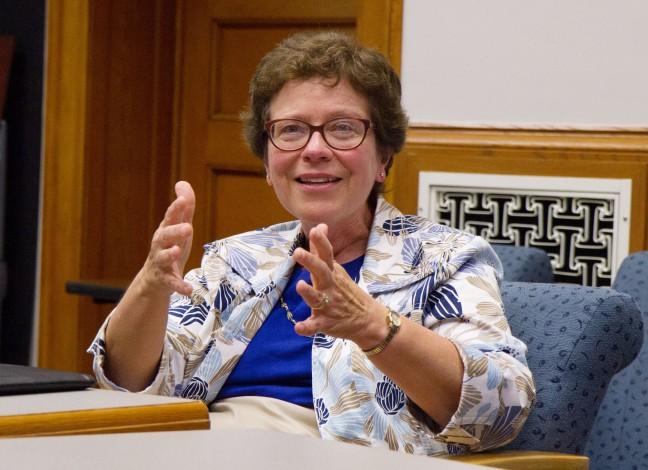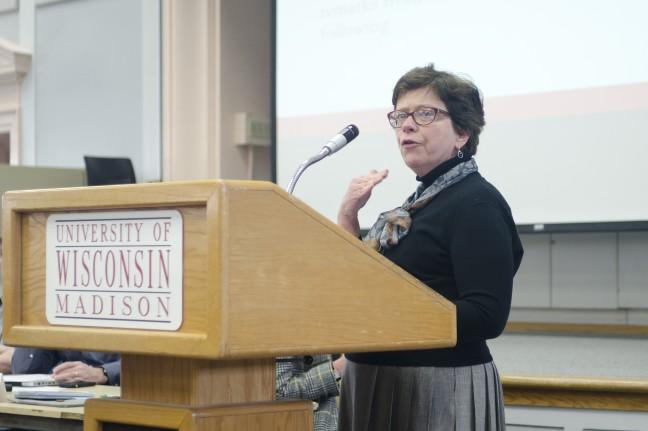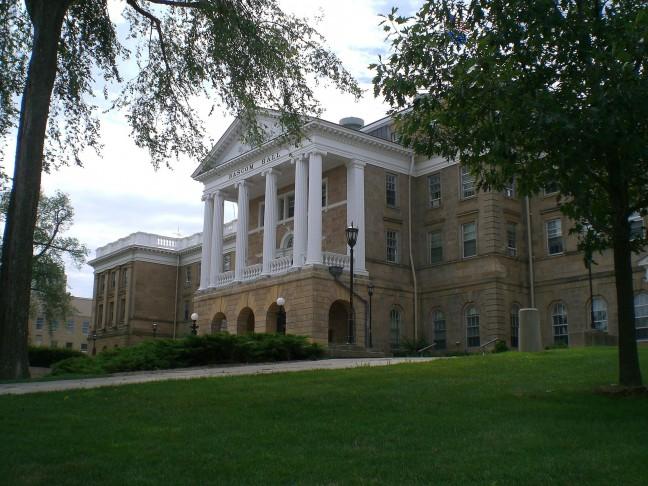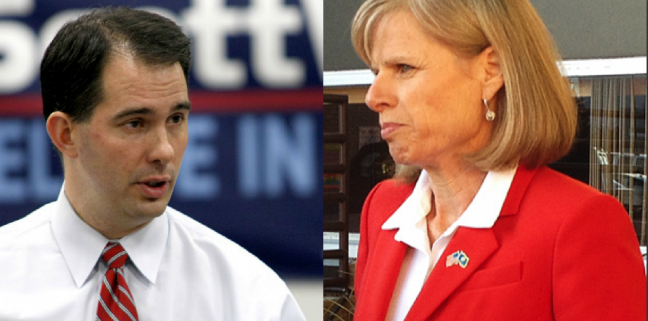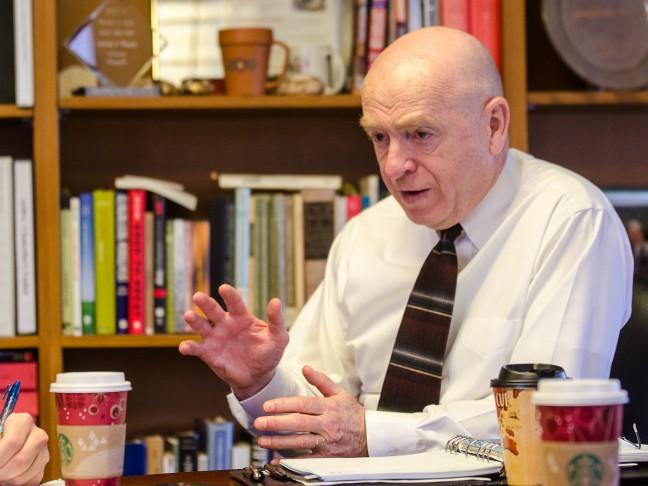All 26 University of Wisconsin System schools were invited to a conversation on the ideal vision of the next UW System President Thursday afternoon via video conference, marking one of the initial steps in the search and screen process.
Communication and the understanding of shared governance quickly became common talking points as the staff and faculty of the participating universities prioritized key characteristics of such a role.
“We could write all the characteristics of who we want for our new president and it would sound like a super hero for public higher education but honestly that is what we need,” Julie Underwood, UW-Madison’s Dean of the School of Education said.
UW System President Kevin Reilly announced he would be stepping down from his position in early July of this year, after receiving heavy criticism from public and state officials about the UW System’s nearly $650 million in reserve funds.
System officials prefaced the video-facilitated discussion with four key questions to “stimulate” conversation and inspire participants to hone in on the distinctive features of the UW System.
With the recent events regarding the excess reserves and system-wide tuition freeze, many highlighted the importance of forward-thinking communication.
“I think the word we need to use is proactive communication–having people know what they need to know about the UW System before they need to know it,” Jake Wrasse, UW-Eau Claire student senate’s director for intergovernmental student affairs, said.
“So if they find out we have surplus, what does that mean? All of sudden that is a new term, that is a scary term, and that is where the conversation gets away from us even before we had a chance to state our case. I think it would be the responsibility of the new president to make sure that what we do is well known and well understood so that as conflicts arise we have at least something going on our side.”
Wrasse, one of several student voices from Eau Claire, was not the only one to highlight this strategic form of communication.
The idea of sharing the UW System story was reiterated by several participants, many of whom felt it was a sector of communication understated by the system’s current leadership.
“Had we done a better job of talking about the impact of the UW System with not only the legislators but also the tax payers of this state, I don’t think we would be sitting in the same seat that we are today,” Sara Kuhl, director of marketing at UW-Whitewater, said. “We have to tell our story–we need strategic communication and an operational plan for communication.”
After 70 minutes of discussion, however, the participating universities had exhausted their list of key skills and characteristics necessary for the next president.
“We need someone who is credible as a scholar and as a citizen of the state and someone that can communicate with shared governance…someone that will champion all of our causes both as facilitator and as an individual, we just need it all,” Underwood said. “This is a great job and this is great state and we should see this in a really positive way. We do need a superhero for public education but I think we will find one.”
The committee charged with the search and screen process has set a Nov. 15 deadline for applications and hopes to make a final announcement by January, Regent Regina Millner and Thursday’s discussion facilitator said.


